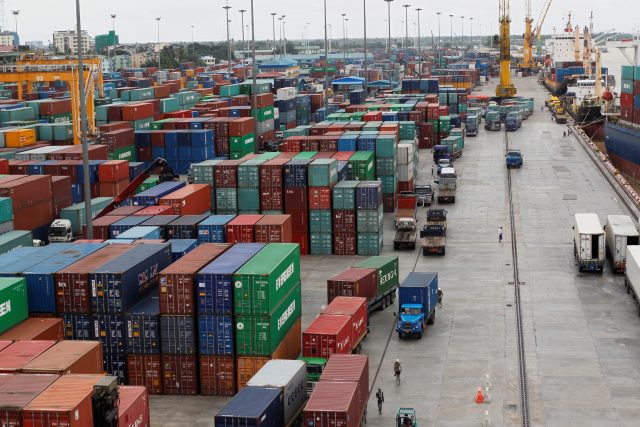
Myanmar, the last frontier in southeast Asia, with a population of 54 million, opened its economy to foreign investments in 2011, when a military-backed civilian government by President Thein Sein took power in the following election.
Following the liberalization and modernization of economic and financial institutions and structures, as well as the country’s first democratic election in 2015, the country experienced rapid economic growth of over 7% per year, fueled in part by large investments from companies including H&M, Adidas, and Samsonite.
Since then, interested foreign investors poured billions of dollars into the country’s oil and gas, infrastructure, manufacturing, transportation, and communication sectors in order to tap into the country’s untapped potential. Last year, however, a novel coronavirus pandemic caused a further drop in foreign direct investment (FDI).
With the exchange of the government in February 2021, Myanmar Insider is closely monitoring the country’s economy — how it would change with everything that is going on right now.
In February, Asia lead economist at Oxford Economics Sian Fenner said, “We do expect this situation to weaken consumer and business trust, with heightened political instability also expected to dampen our prognosticate recovery in investment and economic growth this year.”
He continued that the $3.5 billion (€2.9 billion) in international investment plans awaiting approval will be jeopardized by the political turmoil, with “projects likely to be postponed at best, or probably cancelled.”
Given that investment has been a big engine of growth in Myanmar, accounting for more than a third of GDP in 2019, the expected decrease in FDI inflows would hurt the country’s production.
According to Fenner, down from his 4.1 percent estimate before the government rejig, Myanmar’s GDP will rise at around 2% in 2021. On March 26, the World Bank lowered its augur for Myanmar’s economy to a 10% contraction in 2021, down from the previous forecast of 5% expansion.
In the hands of the EU and the US
Analysts believe that if both the EU and the US tightened sanctions on Myanmar, the economic consequences could be serious.
The US could reimpose sanctions on military-linked companies that were lifted in 2016, but their effect will be limited because Washington is not one of Myanmar’s largest investors or trading partners.
“The consequences would be severe if the United States were to use its nuclear option and cut Myanmar off entirely from its financial sector. Most foreign investments would be limited, and trade with countries other than China would be difficult”, Capital Economics’ senior Asia economist, Gareth Leather, said. But he does not expect Washington to go that far.
By withdrawing Myanmar’s special trade preferences, the EU, Myanmar’s third-largest trading partner, could potentially deal a significant blow to the country’s businesses.
“If the EU removes the trade preferences it gives Myanmar, it would effectively cut off its textile and apparel exports, which have been booming and now account for a significant portion of the economy,” Leather added.
Since Myanmar was granted special market access under the EU’s “all but weapons” scheme in 2013, garment and textile exports to the EU have increased twentyfold, accounting for close to 3% of Myanmar’s GDP, he added.
“Throttling textiles will have long-term consequences because the growth of a sustainable low-end manufacturing sector has historically been the path out of poverty for low-income countries in Asia.”
China has an opportunity
When it comes to investing in Myanmar, Asian countries outnumber both the EU and the US. From 2011 to 2020, Singapore was the country’s largest investor, accounting for more than 40% of total FDI. Myanmar’s largest export market, China, comes in second with a share of more than 20%.
China, which has previously defended Myanmar’s military regime, has yet to condemn the coup, instead urging all parties in Myanmar to “resolve differences.” The military’s action has been characterized as a “major cabinet reshuffle” by China’s state news agency, Xinhua.
Analysts believe that any tough retaliation from the US or the EU will enable Beijing to expand its power in Myanmar, which is already a key part of China’s Belt Road Initiative.
“Myanmar’s opening up to the West will be seen as nearly complete by China. And the only way for them to move forward is to strengthen relations with China”, Leather remarked.
Nonetheless, Myanmar’s economy, which is still suffering from COVID-19 pandemic, is set to suffer even further as foreign investors put billions of dollars in investments at risk since February 1.









